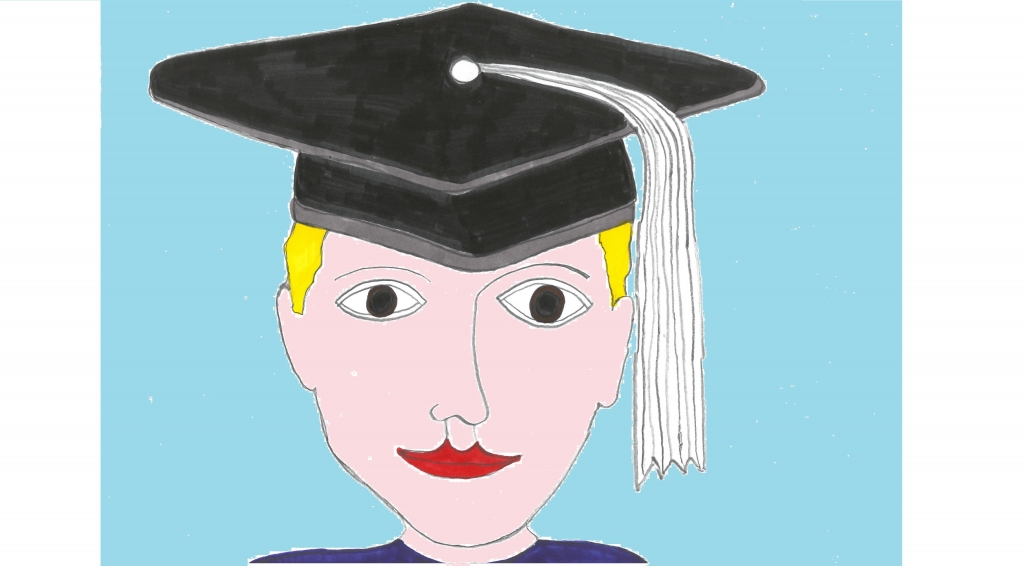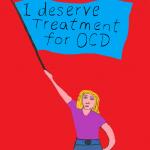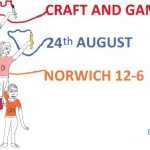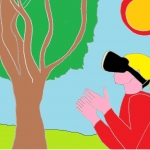The Experts by Experience
September 20th 2016
Dean and India from OCD Youth discuss their own OCD with Researchers at Cambridge University.
Last Tuesday, Dean and I were the experts for the afternoon! We were invited to be ‘teachers’ as part of the “Conversations with Experts by Experience” programme at Cambridge University. Each session covers a different theme and last week it was OCD. The programme was set up to enable researchers to gain first-hand information from ‘teachers’ – the experts by experience. In this session there were around 10 researchers, which seemed a bit daunting at first. But we quickly got used to the set up and were reassured that we didn’t have to answer any question we didn’t want to. There were two other people with OCD, who were also teachers. One was the fantastic Ashley Curry!
The session ran for two hours and we were asked a range of different questions by the researchers, with our own experiences of OCD playing a key role. One of the first questions was whether we wanted to be referred as “OCD sufferers” or “people with OCD”. The consensus was that “sufferers” was too clinical and both Ashley and Dean emphasised that we as individuals are far more than just our OCD. Being instead known as “people with OCD” ensured our identity was not defined by the disorder, and that we were active in overcoming it.
The researchers were also interested in the emergence of our OCD, and whether a particular event may have caused this. Some research suggests that specific, sometimes traumatic events can spark the beginning of OCD. Dean mentioned the stress of his transition from GCSE to AS level as key in the emergence of his own OCD. Similarly, I talked about my struggle with OCD during my A levels. Ashley believed his OCD emerged during his childhood, and raised the point that it takes on average 12 years before a person with OCD accesses treatment.
Moreover, the researchers were interested in the manifestation of the OCD; does it begin with an intrusive thought? How long do compulsions take? Is the compulsion an automatic behaviour? Is there a set number of rituals? These were difficult to answer, and I explained that there was never really a set number of hand washes or checks for me…another teacher mentioned there was a point when it “just felt right” to end the compulsion. It was important to stress here that OCD can’t always be quantified and everyone’s OCD is unique.
As part of this, we wanted to overcome some of the misconceptions of OCD. Obsessions and compulsions concerning fears of germs and untidiness as well as hand washing are some of the most stereotypical views of OCD in the media. These aspects of the disorder do still affect many people with OCD, including myself. Yet, Dean mentioned that his bedroom was never tidy but still struggled with fears of bacteria on his hands, which affected his school life. Ashley added that programmes such as ‘Obsessive Compulsive Cleaners’ continue to add to the stigma that OCD is a disorder solely related to cleaning. Thus, we made it clear to the researchers that OCD is so much more than this stereotypical view. It takes many forms, with the nature of obsessions and compulsions varying greatly among individuals.
Moreover, as teachers, we explained that the disorder often remains very secretive, particularly in the case of the intrusive thoughts. These mental thoughts are arguably the most distressing aspects of the disorder and can be anything from images to thoughts to impulses. They can be violent or sexual in nature or relate to fears of potential disasters. I explained that for me it was about seeking reassurance from my parents for thinking unpleasant thoughts about people. In all, it is these thoughts, which result in the anxiety and must be pacified through certain behaviours, known as compulsions. In addition, we found that between the four teachers, our compulsions were very different. They could be both internal and external, with compulsions ranging from counting or to the more observable, hand washing. This was an important point for the researchers.
In all, Dean and I really enjoyed discussing our own experiences of OCD with the researchers. Through this, we felt we made a valuable contribution to important scientific research. A follow up email from one of the senior researchers at the session described it as one of the “best ever” so it was certainly a worthwhile experience! We hope to do more in the future to further increase understanding of OCD among different groups of people including teachers, parents and young people. Our final message to the researchers was that OCD can be overcome and as individuals with experience of OCD who have successfully recovered form it, we are proof of that.
I hope you’ve enjoyed reading about our experience on the programme and if you’re interested in finding out more about OCD or the work Dean and I are involved in, check out @OCDYouth on Twitter or our website, https://ocdyouth.org. To find out more about the ‘Experts by Experience’ programme, see the leaflet below. Thank you!







